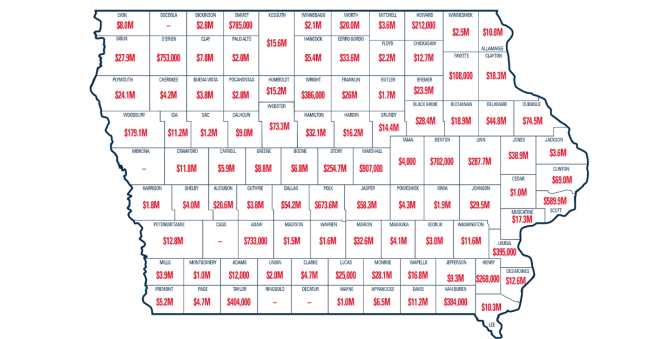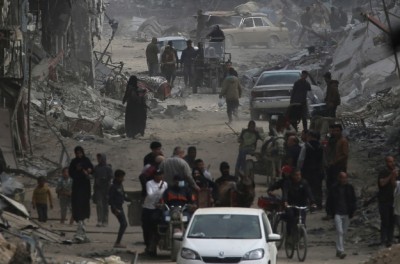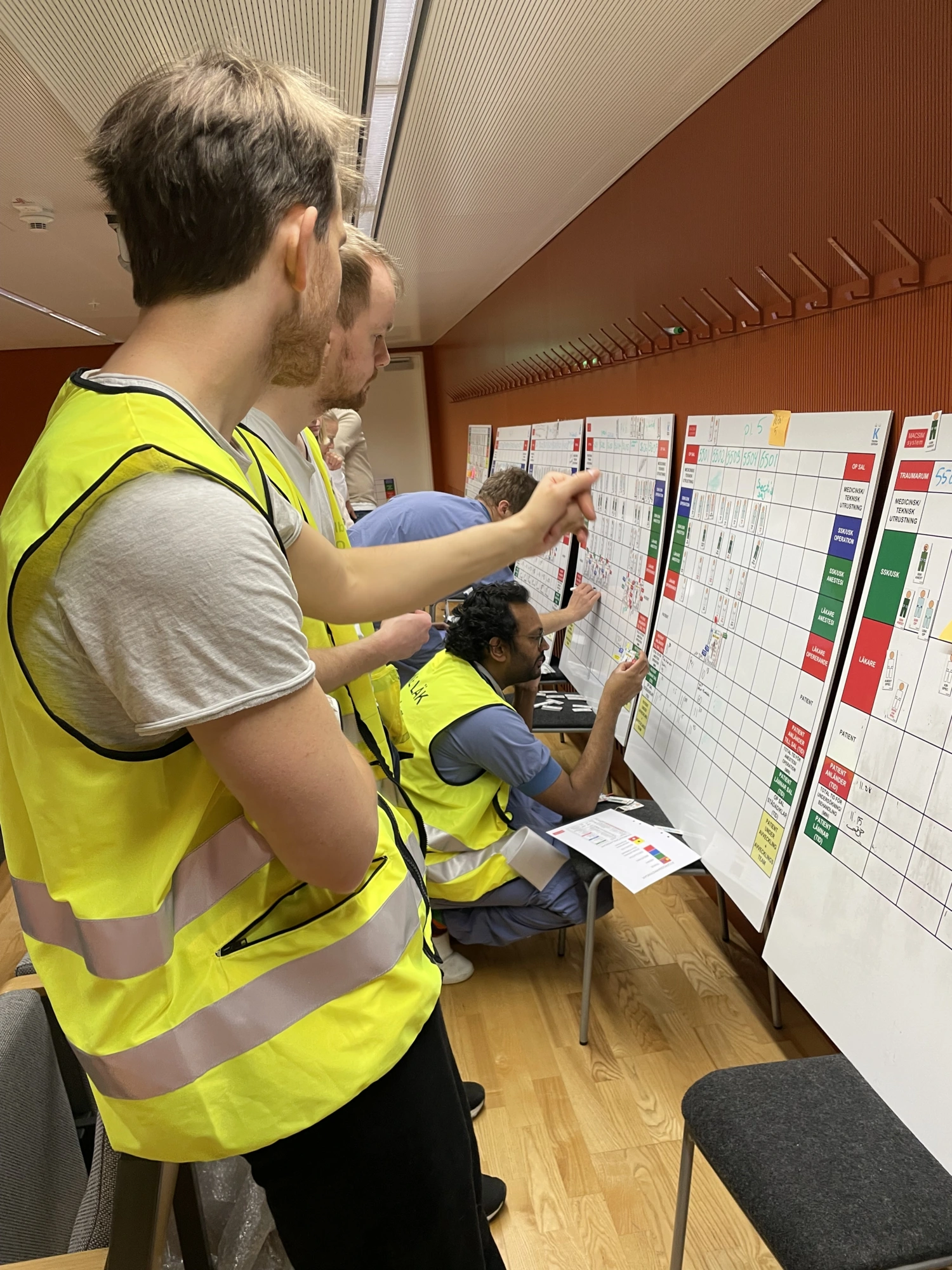Thank you, very much, Mel, for introducing me. And can I thank you for what you do as a leader and a role model for so many Australian women. And can I thank UN Women for giving me the opportunity to make these remarks today.
I want to acknowledge the Honourable Bronnie Taylor, the New South Wales Minister for Women, Minister for Regional Health and Minister for Mental Health; Kavita Naidu, Semin Qasmi, Simone Clarke of UN Women Australia; members of the Office of Women; the Department of Foreign Affairs and Trade, who are part of this national undertaking today; members of the diplomatic corps who are supporting this today.
Can I particularly acknowledge Arianne Weldon for her welcome and her acknowledgement of country, and let me acknowledge the traditional owners of the land on which we are meeting here today – the Gadigal people of the Eora Nation – and pay my respects to their elders past, present and emerging and to all Aboriginal and Torres Strait Islander people who are here with us across Australia today.
And best wishes to all of the women and men who are joining us right across the country in Melbourne, in Perth, in Brisbane and in Canberra.
The international Women’s Day 2022 theme acknowledges the vital role that women play in tackling global problems, including climate change and sustainability. And we know, as we’ve just heard, that we’ve one such woman joining us by pre-recorded interview later today – the remarkable Jane Goodall, who has given similar dedication to climate change advocacy as she did decades ago to primatology.
And there of course, many women in our own region working to effect change across these and other regional and global challenges, whether that is addressing emissions reduction and building climate resilience, recovering from the Covid-19 pandemic and enhancing our future health security, or reducing violence against women and girls.
The global perspective is an important one on International Women’s Day. We know that gender equality is part of the solution. When you engage with women leaders you get commitment, and you get ideas. We need all of the best minds in our communities, whatever their gender, to be contributing to finding solutions to these and the plethora of challenges that we face. Women’s voices, women’s priorities, are an integral part of these solutions.
Throughout the past year and particularly given pandemic restrictions, I’ve continued to have regular dialogues with our women leaders in the Pacific, despite those ongoing travel challenges facing foreign ministers at that time. When we last met through the Pacific Women Leaders Network, 30 women leaders from 17 Pacific countries and organisations, we agreed – affirmed, in fact – that women’s engagement in decision-making is critical to ensuring effective, practical and inclusive solutions.
I am very proud that one of the key initiatives that came from these conversations during 2020 and 2021 was the establishment, the formal establishment, of the Pacific Women Leaders Meeting, which will now be a formal annual meeting in the Pacific Islands Forum calendar. That one change will help to elevate the political attention of leaders across the Pacific to gender equality issues in our region.
The Women’s Resilience to Disasters Program in the Pacific is another powerful idea that has become reality. It is an important new program with UN Women in the Pacific under our signature partnership on gender equality with the Pacific called Pacific Women Lead. It will support Pacific women, their governments and others to create and leader Pacific solutions that advance gender equality, diversity and inclusion in Fiji, in Vanuatu and in Kiribati.
Ladies and gentlemen, as we mark International Women’s Day this year, we are also confronted by the terrible consequence of conflict and unrest for women and girls. And I reiterate that Australia condemns in the strongest possible terms Russia’s unprovoked and unjustified attack on Ukraine.
[Applause]
I know that they can hear that applause – that applause in Kyiv, in Lviv, in other parts of Ukraine, and that Ukrainian Australians can hear that applause as well. And I thank you for it. I acknowledge the recent statement of UN Women’s Executive Director Sima Bahous on Ukraine as current events are jeopardising the safety of all Ukrainians, including putting women and girls at increased risk of sexual and gender-based violence. We’ve heard Alison Davidian, acting head of UN Women and an Australian speak on the situation facing women and girls in Afghanistan with Semin Qasmi who previously worked for Australia and with DFAT. I’d like to thank both Alison and Semin for their dedication.
In Australia’s humanitarian responses, responses to conflict, to natural disaster, including in Afghanistan, in Myanmar and in Tonga, we’re ensuring our support for women and girls. Women’s needs, women’s voices, women’s priorities, women’s leadership matters, especially in challenging times.
We continue to work towards greater equality here in Australia to end violence against women and girls and to eliminate sexual harassment. This time last year I spoke here about the issues facing the Parliamentary workplace. The events of 2021 were pivotal for Australian women and workplace conduct, and particularly in Australia’s Parliament House and were events on which I am sure we have all reflected deeply.
In November the Sex Discrimination Commissioner Kate Jenkins released the Set the Standard report on the independent review into commonwealth Parliamentary workplaces. The Government has committed to implemented all 28 recommendations of the report, and we have already established a multi-party leadership task force of which I am honoured to be a member with Kerri Hartland as the independent expert chair.
I commend the Sex Discrimination Commissioner and her team on this very important work. I also want to acknowledge Brittany Higgins for her courage and bravery in speaking publicly.
[Applause]
And for her ongoing advocacy of these important issues that must and are being addressed. These matters have affected and impacted our national Parliament like many other workplaces in this country for far too long. A first outcome from the task force and given in response to recommendation 1 of the Set the Standard report was the statement of acknowledgement to the Parliament delivered by Presiding Officers one month ago and the establishment of a Joint Standing Committee on Parliamentary Standards.
We have also passed the required legislation to confirm that the Fair Work Act, the Age Discrimination Act, the Disability Discrimination Act apply to members of Parliament employees and the Work Health and Safety Act applies to members and senators as employers from recommendation 24 of Kate Jenkins’ report.
The Government has commissioned the comprehensive review of the Members of Parliament Staff Act, which is due to report its conclusions by September pursuant to recommendation 18 of the report.
These actions demonstrate the Government’s and the Parliament’s commitment to ensuring real change across the national Parliament. It doesn’t mean that all of the issues exposed in the review are resolved, but it does mean that important steps are being taken to prevent others enduring the experiences that were described by Brittany Higgins and that many others described to Kate Jenkins and her team. They are both disturbing and distressing to me and to many Australians.
Throughout 2021-22 Women’s Budget Statement the Australian Government committed over $3.4 billion to improve outcomes for women’s safety, economic security, leadership and health. And as we gather here today, I am pleased to say that we’ve seen the highest women’s workforce participation rate on record at 62.1 per cent, demonstrating the critical role that women are playing in our recovery from Covid-19.
Indeed, the Australian economy grew by 3.4 per cent in the December quarter, the equal strongest quarterly growth in 46 years. Women’s economic empowerment and their full equal and meaningful participation are absolutely critical to that economic recovery from the Covid-19 pandemic.
I also announce here today that the Morrison Government has today welcomed and released the review of the Workplace Gender Equality Act 2012, a commitment, again, from the 2021-22 Women’s Budget Statement. Those 10 recommendations aimed to progress gender equality outcomes in the workforce streamline the reporting process for businesses and free up employers to take action proactively on gender equality in their workplaces. As a Government we had now focused on working towards the implementation of these 10 recommendations, noting that the report requires further consultation with business on some aspects.
This report was based on consultation with businesses, with employers, with employee organisations, with women’s organisations, with academics through eight virtual roundtables and over 150 written submissions. And I want to thank all of those who contributed, and many of you may be in the rooms around Australia today for these lunches. But particularly including Pip Marlow, the CEO of Salesforce Australia and New Zealand and Kerri Hartland, the Principal Adviser of Proximity, for their assistance as expert advisers to the review.
More widely, we are making progress in the private sector, the Government roles and in politics. Last December saw Australia reach a new record for women’s representation on Australian government boards – 50.2 per cent of women now hold those roles on the boards of your commonwealth Government. We set that target as a Government and we met it.
As Minister for Women, I’m working the Minister for Women’s Safety Anne Ruston and women leaders, experts, service providers, those from diverse backgrounds and particularly those with lived experience to finalise the new national plan to end violence against women and their children. This plan explicitly acknowledges that women and children face a greater risk of violence.
The past few years have provided us with an opportunity to refocus, to recognise and to acknowledge these issues and the need to address them. As a Government we have put significant effort into bringing about practical and necessary change, and we will keep working to improve outcomes for all women and girls. But we do have to look beyond government. We have to look at our communities, the private sector, civil society and individuals. Because by working together we will make a much more positive difference for women and girls.
Ladies and gentlemen, I apologise that I’m not able to stay for the entire event today. I want to congratulate UN Women on such a wonderful event, though. It’s reinforcing, affirming experience you can feel when you walk into this room and I’m sure all the other rooms around Australia.
This year on International Women’s Day we’ll particularly celebrate those women in Australia, in our region and beyond who are making our world more inclusive and more equal. And on International Women’s Day next Tuesday we have an opportunity and, indeed, an obligation to focus on the change we need to make and to acquisitions emergency the extraordinary contributions that women make across our world, contributions that are coming from so many women, including many of you here today.
I thank you for that. And I wish you a very strong and happy and successful International Women’s Day.








